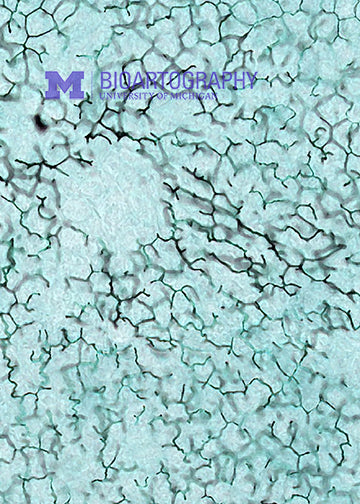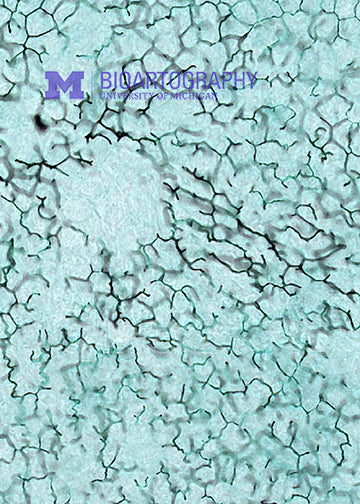

Deborah Gumucio, Ph.D., Professor, Department of Cell and Developmental Biology, University of Michigan Medical School
The liver is a vital organ that carries out a number of functions, including the manufacture of essential proteins, productions of hormones, synthesis of cholesterol and detoxification of drugs or alcohol. Through the production of bile (a detergent-like substance), the liver also plays an important role in the digestion of fats from the diet. Bile is made by the liver cells or hepatocytes and secreted into small canals called bile canaliculi that are formed between hepatocytes. The canalicular system joins together into a spectacularly complex network to collect the bile and deliver it to the gall bladder, where it can be held until it is needed to aid in the emulsification of a fatty meal. The elaborate canalicular system of a mouse liver can be visualized using a silver stain, which stains reticular fibers black.
